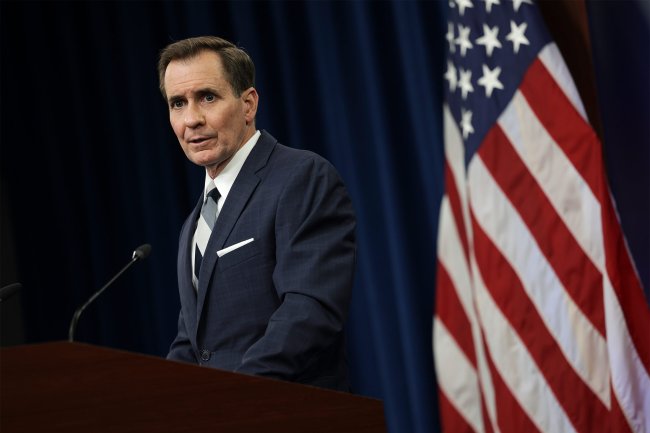Marjorie Taylor Greene Initiates Move to Replace House Speaker Mike Johnson
Marjorie Taylor Greene files resolution against Speaker Mike Johnson, stirring political dynamics in the House

- Introduction
- Background: The Motion Against Speaker Johnson
- The Implications of Greene's Move
- Reaction Within the House
- Potential Outcomes and Impact
- Conclusion
- FAQs
Introduction
In an unexpected political maneuver, Congresswoman Marjorie Taylor Greene has filed a resolution to remove U.S. House Speaker Mike Johnson from his position. This bold step echoes last year's parliamentary move that led to Johnson's rise as speaker, underscoring the volatile dynamics within the House Republican Conference. This article delves into the motivations behind Greene's action, the potential ramifications for House leadership, and the broader implications for the political landscape.
Background: The Motion Against Speaker Johnson
Georgia Republican U.S. Rep. Marjorie Taylor Greene took a significant step by filing a motion to vacate the office of the House Speaker, a parliamentary tactic similar to the one that facilitated Mike Johnson's ascendancy. Despite the passage of crucial government spending bills, Greene's move signals a deep-seated discontent with Johnson's leadership, particularly his collaboration with Democrats, which has sparked controversy within the Republican majority.
The Implications of Greene's Move
Greene's decision not to prioritize the motion reflects a strategic approach to challenging Johnson's leadership without immediate chaos. By reserving the right to force a vote at any time, Greene sets the stage for a period of uncertainty and introspection within the Republican Conference, highlighting the need for a leader who aligns more closely with the majority's values and strategic objectives.
Reaction Within the House
The reaction to Greene's resolution has been mixed, with some Republicans openly supporting Johnson and criticizing Greene's tactics. The notion of another leadership challenge, following the tumultuous ouster of Kevin McCarthy, raises concerns about the stability and unity of the Republican majority, especially as the party aims to solidify its position ahead of upcoming elections.
Potential Outcomes and Impact
Greene's move against Johnson has the potential to reshape House leadership and alter the political dynamics within the Republican Party. With a slim majority, the outcome of any vote on the motion is unpredictable and could lead to another extended period of leadership vacuum and internal conflict. This situation underscores the fragile nature of party unity and the impact of individual actions on collective goals.
Conclusion
As the House Republican Conference grapples with this new challenge to its leadership, the implications for party cohesion, legislative agenda, and political strategy are profound. Greene's resolution against Speaker Mike Johnson not only reflects individual discontent but also signifies deeper divisions within the party, posing a critical test of resilience and adaptability.
FAQs
- What motivated Marjorie Taylor Greene to file the resolution?
- What are the immediate implications of Greene's resolution for the House?
- How does the motion to vacate the Speaker's office work?
- What could be the potential outcomes if the motion passes?
- How does this situation compare to previous challenges to House leadership?
For more insights and analyses on political developments, visit Kiksee Magazine.
What's Your Reaction?





















